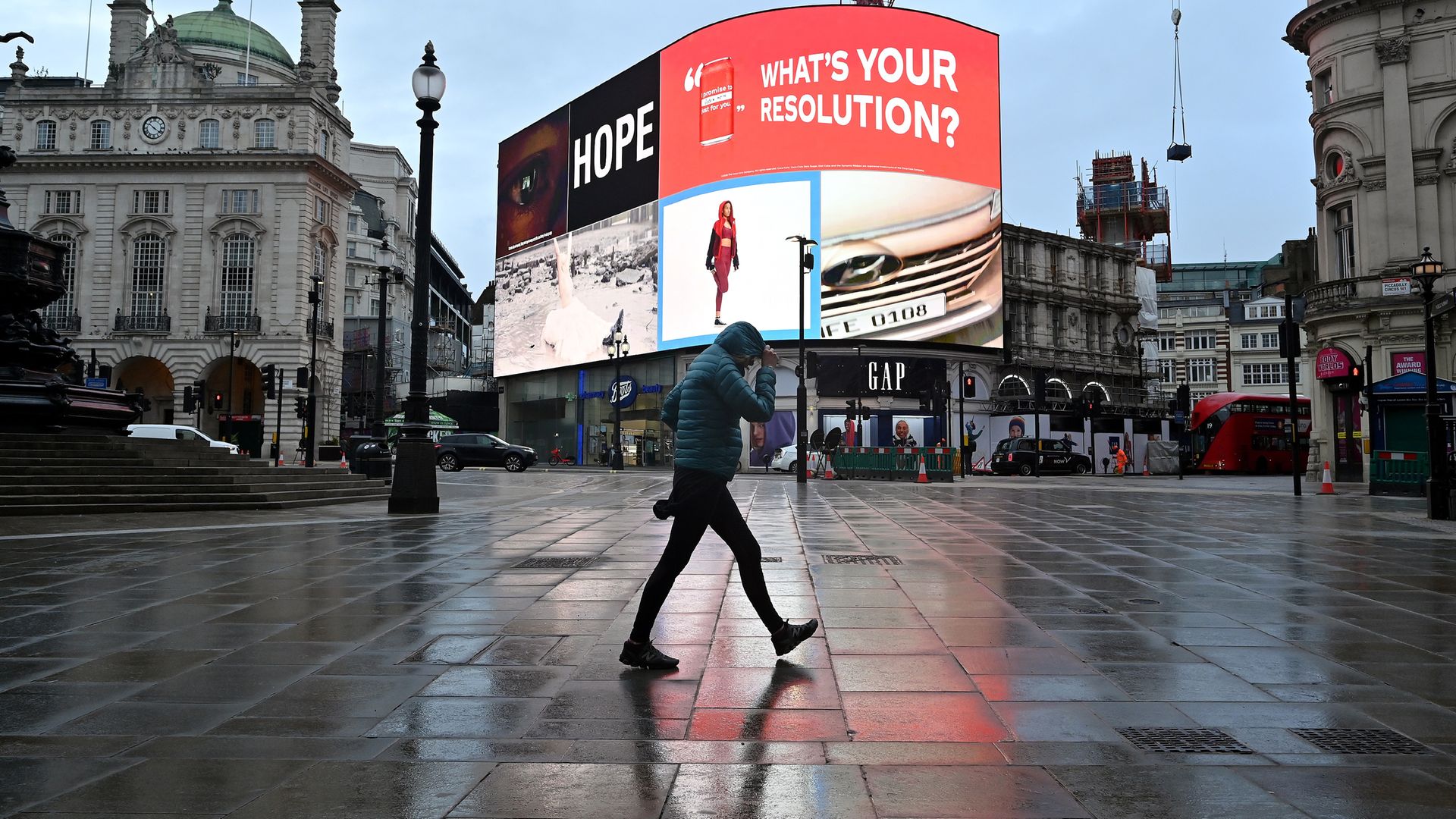
One of the most alarming aspects of the pandemic is the sight of the mainstream right degenerating into attacks on public health policy. This week, as the virus spiralled completely out of control, they were still spewing out gibberish from the studios and newsrooms of respected British media outlets.
“Lockdowns don’t work,” Talk Radio host Julia Hartley-Brewer said on Monday, “and cost more lives… than they save.” Back in the autumn, when the evidence was already hinting at the current disaster, she wrote: “The government is planning to lockdown our country again when there is no evidence of a second wave.”
Over at the Telegraph, columnist Allison Pearson has developed a similar narrative. Her pieces have variously claimed that the government is “pretending that a lethal pandemic is sweeping the land”, that MPs should “summon the courage and vote to cancel Lockdown 2” and that “you probably won’t kill your gran if you see her, but not seeing her might just kill her”.
There are plenty of others, including the Mail on Sunday‘s Peter Hitchens, LBC’s Maajid Nawaz, Toby Young at his ‘lockdown sceptics’ website, and of course Nigel Farage, who is looking to turn this movement into the spearhead of a post-Brexit political initiative.
This is how I see things: they are wrong and have been repeatedly shown to be wrong. They were wrong on the efficacy of the first lockdown, wrong on how to come out of it, wrong on the second wave, wrong on face masks, wrong on herd immunity, wrong on Christmas, wrong on the second lockdown, and now they are wrong on the third. Never before in British political history have a set of people been proved wrong so swiftly, conclusively and repeatedly and yet continued to spout their nonsense.
They claim that it is they who are speaking up for the devastating effect of lockdowns on people’s jobs or their mental health, as if these are being ignored by others. In reality, every advocate of lockdown is aware of these horrendous consequences and demand generous state support for companies and the self employed, support bubble maintenance, and endorse the basic human responsibility to check in with your friends and neighbours.
No-one likes lockdown. It is possible to believe it is necessary and yet still hate it with every bone of your body. We can’t deny the reality of the situation we’re in. Allowing the pandemic to run rampant would lead to countless more deaths than we’re already experiencing. And that, along with its grotesque moral cost, would do no good for the economy either.
I find it telling that every prominent lockdown sceptic is an outspoken Brexiter. That’s not true in the population at large. A Kantar Public Voice survey found no difference in lockdown compliance according to people’s EU referendum vote. A recent YouGov poll found that Remainers were only slightly more supportive of tougher government action, with 76% supporting keeping schools in England closed after Christmas compared to 65% of Leavers. But in the political-media class, lockdown scepticism apparently breaks cleanly along Leave-Remain lines.
That shouldn’t surprise us. It appears there is a key similarity between Leave arguments and anti-lockdown rhetoric: the hatred of experts.
During the Brexit debate, experts were denigrated and dismissed. Their assessment of economic harm or the reality of trade barriers were discarded as the mewling of the elite. That sense of hostility to expertise has now mutated into suspicion of virologists, epidemiologists, doctors and public health researchers.
We see a variant of this process in studies of conspiracy theories, on topics like the Kennedy assassination and September 11. Researchers have found that once someone accepts one conspiracy theory they are likely to accept several more. They experience a kind of epistemic breakdown – a collapse in their capacity to process information about the world.
Once they believe that a shadowy cabal of powerful interests orchestrated a terror attack on domestic soil and then organised fictitious media coverage of it, they will also believe that those interests can invent the evidence which disproves their involvement. Anyone powerful enough to conduct a conspiracy is also powerful enough to cover it up.
These sceptics therefore become immune from refutation. Everything which confirms their world view is valid and anything which does not is a product of the conspiracy.
The same principle applies with experts. Once the sceptics deem those with knowledge and experience of a subject to be untrustworthy, all expertise – on any policy area – can be readily dismissed in favour of their own gut-instinct. Their ability to ground their view of the world in empirical reality collapses.
Brexit has led to the radicalisation of whole sections of the mainstream political right. For the time being, we are lucky that most people are sensible enough to ignore them. But I do not consider that excuses their behaviour, or the willingness of respectable media outlets to let them corrode public trust in the middle of a pandemic.










